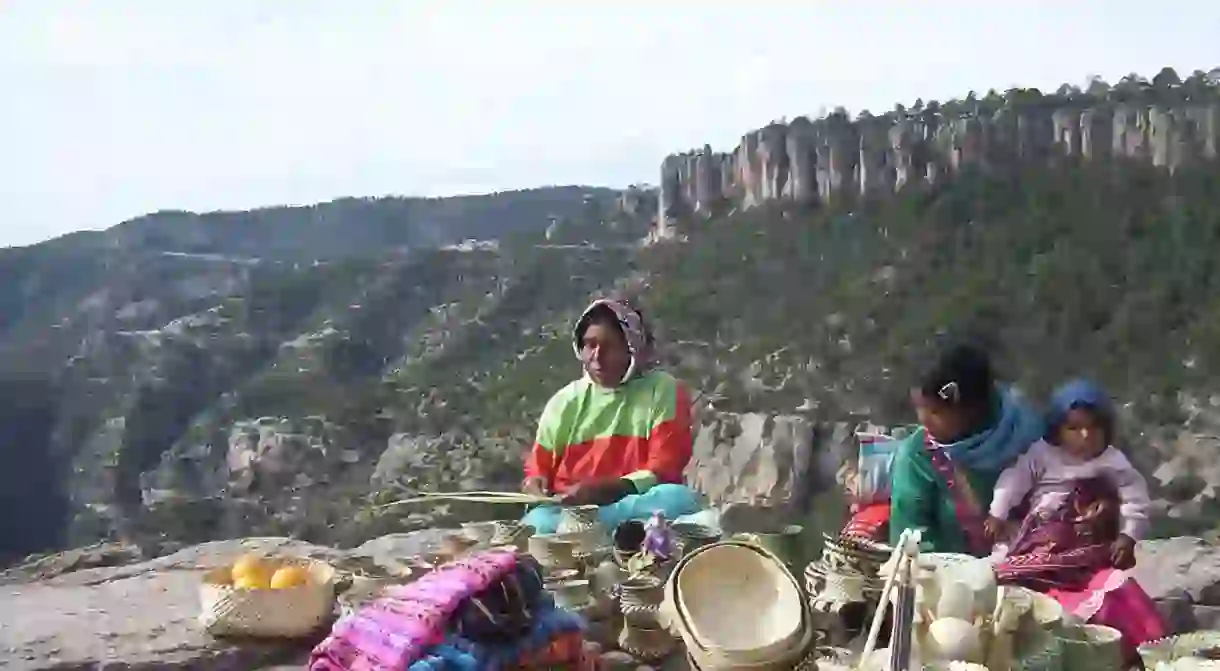Meet the Tarahumara Runners of Mexico

The Tarahumara runners of northern Mexico are internationally known for their practically superhuman running abilities and incredibly good health. These secluded Native Americans have stunned researchers and fellow ultra-running competitors for decades. But who are they and what can we learn from them? Here’s everything you need to know about Mexico’s Tarahumara runners.
Who are they?
While most of Western society knows them by the name Tarahumara, this 106,000 strong indigenous group often refer to themselves as Rarámuri, which translates to ‘running people’ or ‘swift of foot’ in their native language. Historically speaking, they are most well-known for evading the clutches of the Spanish Conquistadors in the 16th century and maintaining their secluded lifestyle in the vast expanse of the Sierra Madre Occidental mountains. They are also renowned for their incredible running abilities.

Aside from their physical prowess and historic resistance, the Rarámuri are also known for their extraordinary health. National Geographic studies found they suffer from practically zero diabetes, heart disease, or cancers. They also claimed that they were super-humanly happy, too; their world includes no murder, suicide, theft or cruelty, according to the 2008 research.
In recent years, though, this previously ferociously secluded group has been succumbing to the influence of Western culture – formerly favoring loincloths, Rarámuri can now be spotted wearing jeans and indulging in those most Mexican of junk foods – Maruchan instant noodles, potato chips and Tecate beer.

Running
When it comes to the world of running, though, there is practically no-one else in the world who could match a Tarahumara runner – even deer and turkeys can’t win, as the group can typically outrun the animal until it dies. For them, running is a source of enjoyment (they have a traditional game known as rarajipari) but also very much necessitated by their livelihood; settlements are separated by vast distances, meaning that it’s not uncommon for Tarahumaras to cover upwards of 100 miles in just a few days, all while wearing traditional huarache sandals.
They were most recently thrown into the global limelight again as a result of the hugely influential book Born to Run, which launched the barefoot running fad in the US. Written by Christopher McDougall, the book also preached the importance of their traditionally plant-based diet, and so-called natural running form. The group has also been the subject of documentaries such as Goshen: Places of Refuge for the Running People.
However, while many will be quick to point out that in recent times the Rarámuri have not been winning all of their ultra-marathons in which they normally dominate, this is actually as a result of external factors, most notably drought and famine – growing crops and consuming the necessary calories to win has proved impossible for many. Furthermore, the dominance of narco culture in Mexico has been impeaching onto Tarahumara territory, using their land to grow marijuana and cultivate opium thus further halting the farming of crops.

What can we learn from them?
Many people have postulated on just what we can learn from the Rarámuri, including Born to Run author Christopher McDougall, along with endless streams of internet commentators, but it’s tricky to completely define just how their lifestyle could benefit outsiders. It’s clear that adopting a plant-based diet similar to theirs could be of use to many people, especially when it comes to health benefits, but it’s yet to be ascertained if running barefoot is actually the key to achieving their superhuman feats. After all, perhaps it’s just a simple case of genetics.














